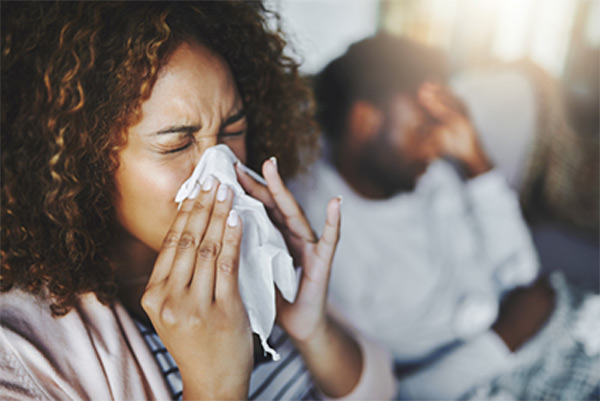This Has Been more important than ever to get vaccinated this year.
According to Sindhu Aderson, MD, the medical director of Northwestern Medicine Immediate Care, side effects from vaccination are generally temporary and only last for a day or two after receiving the vaccine. It is also worth noting that those who are vaccinated and still contract the flu tend to have milder symptoms and a lower risk of hospitalization. Dr. Aderson emphasizes the importance of getting the flu vaccine in order to protect ourselves and those around us.
1. Shoulder soreness
According to the Centers for Disease Control and Prevention (CDC), if you receive the flu vaccine as an intramuscular injection in your arm, you have a chance of experiencing muscle soreness in the upper arm ranging from 10 to 64 percent. This is because the needle causes microscopic damage to the cells in the muscle and is meant to trigger an immune response. To relieve the soreness, you can take over-the-counter pain medication, but if the pain is severe or affects your mobility, it is recommended to check with your doctor. If you are experiencing shoulder soreness, especially at the injection site, taking Tylenol may be helpful. Other anti-inflammatory medications may interfere with the vaccine’s immune response, so Tylenol is generally recommended for addressing post-vaccine symptoms.
2. swelling Occurs at the injection site
According to Dr. Adalja, a topical reaction (such as redness and swelling) is a common side effect that can occur whenever the skin is pierced and something is introduced into the body. This is just a sign that the immune system is activating. While these reactions are normal and usually only last a few days, you can take ibuprofen (Advil) or acetaminophen (Tylenol) if the symptoms are bothersome. To help reduce redness and swelling, you can use topical creams and avoid activities that involve the shoulder. You may also want to schedule your flu vaccine for a day when you have a break from the gym or other activities that may put strain on your arm, which may be sore after vaccination.
3. Body aches
If you experience soreness in areas other than your arm after getting the flu vaccine, it is usually not a cause for concern. However, it is worth noting that the flu vaccine takes about two weeks to become fully effective, so body aches could potentially be a sign of the flu itself if you contract it around the time of vaccination. It is always a good idea to pay attention to your body and discuss any concerns with a healthcare professional.
4. full-body rashes or itchings
If you experience hives or difficulty breathing after getting the flu vaccine, this could indicate an allergic reaction. However, it is extremely rare to have an allergic reaction to the flu vaccine. There are misconceptions about allergies to the vaccine due to the fact that most flu shots and nasal sprays are made using technology that involves small amounts of egg proteins, according to the Centers for Disease Control and Prevention (CDC). If you have concerns about allergies or any other potential reactions to the vaccine, it is always best to speak with a healthcare professional.
5. Fever
It is uncommon to develop a fever after receiving the flu vaccine, but if you do, it is likely to be a low-grade fever (less than 101 degrees). If your fever is higher than this, it is probably not related to the vaccine and may be caused by another illness. Remember that you are getting the vaccine during the peak season for respiratory viruses, so it is possible that you may have been incubating another virus without knowing it. If you have any concerns about fever or other symptoms after getting the flu vaccine, it is always best to consult a healthcare professional.
6. fainting
If you experience dizziness or fainting after getting the flu vaccine, it is more likely to be a result of needle phobia rather than a side effect of the vaccine itself. If you have a fear of needles or think you might have a stress reaction during the vaccination process, it is a good idea to let your healthcare provider know in advance. They can take steps to ensure your safety and comfort, such as having you sit down after the shot to prevent injury.



